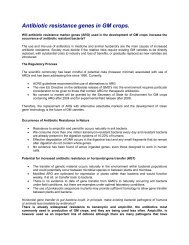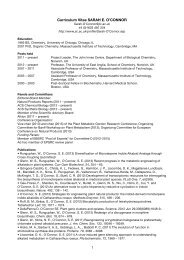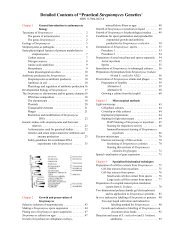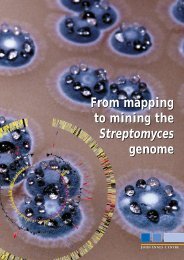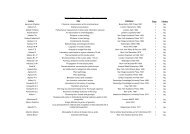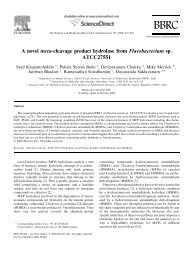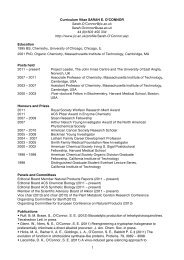Economic Impact brochure - John Innes Centre
Economic Impact brochure - John Innes Centre
Economic Impact brochure - John Innes Centre
You also want an ePaper? Increase the reach of your titles
YUMPU automatically turns print PDFs into web optimized ePapers that Google loves.
Research frontiers<br />
Plant viruses to produce<br />
pharmaceuticals<br />
Scientists are beginning to use plants to produce<br />
pharmaceuticals cheaply, safely, abundantly, and in<br />
a form that can be easily consumed. JIC scientists<br />
have already engineered cowpea plants to produce<br />
antibodies against a highly contagious gut virus that is<br />
particularly lethal to piglets.<br />
The same technology helped produce candidate<br />
vaccines to the H1N1 swine flu virus in just 14 days.<br />
Chief Executive of the BBSRC Professor Douglas<br />
Kell commented:<br />
“This application shows the real<br />
value of investing in basic research<br />
in the early days so that we can<br />
have useful technologies further<br />
down the line.”<br />
The virus that causes the gut disease in piglets is<br />
similar to the virus that causes Severe Acute Respiratory<br />
Syndrome (SARS). Plants could be used to quickly<br />
generate large amounts of material to provide<br />
immediate protection to healthcare workers in the<br />
event of an outbreak.<br />
Future research will look at producing cheap, reliable<br />
and convenient vaccines against other livestock<br />
diseases, including avian flu and blue tongue.<br />
Exploiting plant natural products<br />
Plants produce a huge array of natural products that<br />
they use to colonize and adapt to their environment.<br />
These diverse products are not critical for survival under<br />
laboratory conditions, but in nature they give a plant<br />
certain advantages. For example, defence compounds<br />
to fight off herbivores and diseases, flower pigments to<br />
attract pollinators, or chemicals to suppress the growth<br />
of neighbouring plant species. They are also important<br />
because they promote health as part of our daily diet of<br />
fruit and vegetables.<br />
Plant natural products are also exploited by humans<br />
as drugs, flavouring agents, fragrances, pesticides and<br />
food colourants. The diverse plants around the world<br />
produce about half a million different kinds of natural<br />
products and there is a rich reservoir of metabolic<br />
diversity that has not yet been tapped. JIC scientists are<br />
looking to understand how and why these compounds<br />
are made, with a view to discovering or engineering<br />
new products for agriculture, health and other biobased<br />
industries.<br />
For example, take-all is a fungal disease that affects<br />
around half the UK’s wheat crops, costing the<br />
agricultural industry up to £60 million a year. Take-all<br />
cannot be easily controlled chemically or by choosing<br />
varieties with natural resistance.<br />
However, JIC scientists have discovered that an<br />
antimicrobial natural product produced by oats<br />
provides protection against the take-all fungus. They<br />
also discovered that a cluster of genes is behind the<br />
production of this compound. Experiments are now<br />
underway to transfer components of this gene cluster<br />
from oats into wheat and other crops in order to breed<br />
resistance into them.



